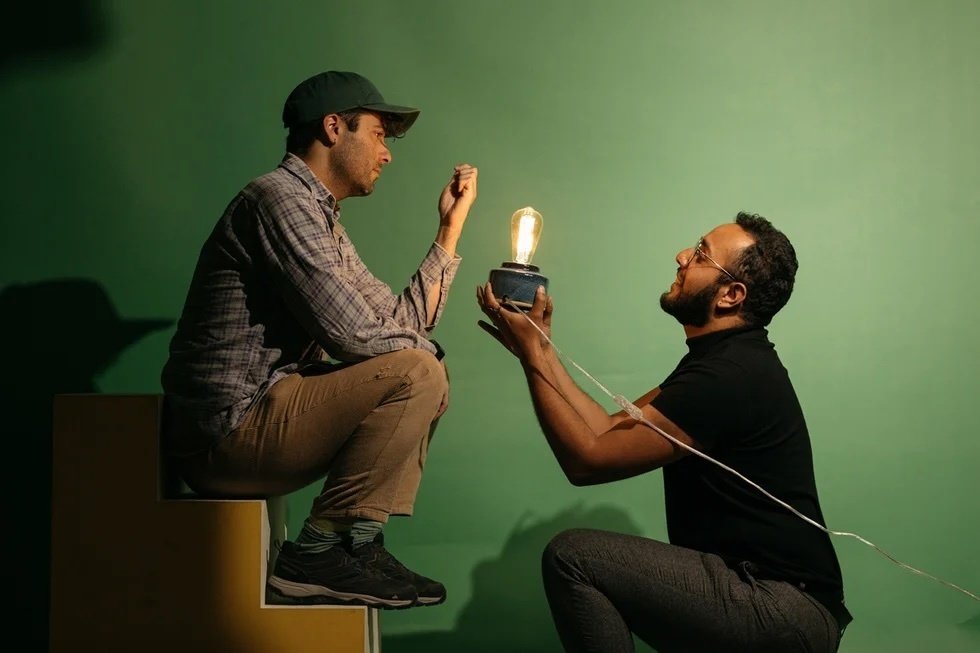Compliments that count: mastering flattery in job interviews
Mar 02, 2023
4 mins


Experienced wordsmith and storyteller, leveraging a unique perspective and creative flair to craft compelling narratives and captivate audiences across various mediums.
“Flattery will get you everywhere,” they say, but when it comes to job interviews, it’s important to tread carefully. A well-placed compliment can make all the difference, but too much adulation can come across as insincere and even jeopardize your chances of landing the job. So, how do you balance showing appreciation and coming across as professional and respectful? By approaching flattery with a strategic mindset, you can use it to your advantage and make a memorable impression on your interviewer.
“In my experience, both as a candidate and an interviewer, a little flattery goes a long way,” says CEO and founder of Home Grounds, Alex Mastin. “Whatever you do, don’t overdo it.” Consider what you want the interviewer to remember you for and how you can use compliments to emphasize those points. Complimenting the company’s accomplishments and its management team or praising the interviewer on the well-thought-out questions can show that you have done your research.
The risks of using flattery in job interviews
There are a couple of risks associated with using flattery during a job interview, according to Mastin:
- Flattery must be fitting and sincere to have a positive impact. Overdoing compliments can make your remarks seem insincere, causing the recipient to lose interest. If the compliments seem forced or fake, that is an immediate warning sign and can drive away the person conducting the interview.
- Avoid being overly personal. For example, commenting about someone’s physical appearance can make interviewers uneasy. Instead, keep your focus on the professional aspect. When offering compliments, be specific to demonstrate your authenticity.
Tips for giving sincere compliments
You want your compliments to be sincere and genuine. Mastin advises tailoring your compliments to the interviewer and the position you’re applying for. “For example,” he says, “in HR, this might be company culture, whereas, in marketing, it could be complimenting a certain campaign.”
Targeted compliments demonstrate your attention to detail, research efforts, and interest in working for the specific organization, a form of flattery that can leave a positive impression on the interviewer. Critical thinking and human skills trainer Bethan Winn says to be mindful of the language and avoid overly personal compliments or physical gestures.
Focusing on things related to the role or company, such as the company values or culture—rather than the individual interviewing you—can demonstrate your research and interest in the position. Maintain professionalism and avoid any behavior that could be considered inappropriate or sexual.
She says it’s important to note that building rapport can vary based on cultural and personal differences. However, universal actions can help create a positive connection with others, regardless of these differences, such as smiling, making eye contact, and commenting on positive aspects of the interviewer or company.
“People like people who they think like them,” says Winn. “Therefore, it’s ok to do some behaviors that may be perceived as ‘flirty’ in a different context to show that you like or appreciate the person.”
Building a positive connection
Identifying areas to complement can seem like a daunting task. However, HR consultant Sally Dillon of Revolution Consulting Group says there are a few ways to identify complementary opportunities starting with your research.
Preparing questions you want to ask the interviewer can show interest in the company and the role. This approach can establish a rapport with the interviewer, as they can see that you have taken the time to research the company and are genuinely interested in the opportunity. It is also a good idea to be knowledgeable about the industry and current trends, as this can demonstrate your passion and expertise in your field.
“The interview should be a two-way conversation,” says Dillon. Don’t forget to thank them for their time during the interview and ask when to expect to hear back.
Be prepared to answer questions about your strengths and weaknesses, your motivation, and why you think you’re the best person for the job. Be mindful of how you phrase your comments.
“You don’t know the people you are interviewing with or their tolerance to flattery,” says Damian Birkel, founder of Professionals In Transition Support Group. “If you compliment the person, outfit, or office, keep it short and polished.”
Birkel says a “BS”-er may be perceived as needy, insincere, or willing to say anything to accomplish your goals. Excessive complimenting comes from the nervousness the interviewee is feeling. Birkel suggests that self-awareness, keeping answers concise, and following the interviewer’s cues can help manage anxiety and prevent excessive flattery.
Avoiding excessive flattery
So, what’s the risk if you go overboard? Employers can get the wrong impression when interviewees display too much flattery, which could lead to accusations of manipulation—far from ideal when you’re trying to land your dream job. To avoid this, Birkel outlines three tips for influencing the conversation in a positive direction:
- Build rapport throughout the interview
- Show why you are the “answer” to the interviewer’s needs
- Highlight why your transferable skills and experience are a good match
Flattery can be a valuable tool to build relationships and express appreciation, but using it appropriately and professionally is important. Be aware of the power dynamics between the interviewer and interviewee and ensure that compliments are not used to exploit this relationship.
Balancing flattery with professionalism
So how can candidates balance flattery with professionalism in the interview? Christa Reed, Head of Job Market Research at JobSearcher, says there are five ways:
- Think about the context. Considering the context, including the purpose of the interaction, the setting, and the people involved, is crucial in determining whether flattery is appropriate. Flattery may be appropriate in some situations and not in others.
- Be genuine. It is recommended to be sincere and avoid exaggeration when complimenting someone. Specific compliments demonstrating appreciation for the person’s work or contribution are preferred.
- Avoid “overdoing it.” Excessive flattery can create the impression of insincerity or manipulation. It is advisable to ensure that compliments are specific, relevant, and appropriate.
- Show respect. Although flattery and respect may be related, the two are not the same. Acknowledging a person’s accomplishments, listening to their ideas, and offering constructive feedback are recommended ways to demonstrate respect toward them or their work.
- Remain professional. While complimenting someone, it is essential to maintain a professional demeanor. One should avoid being too casual or informal, as it can be perceived as unprofessional.
Flattery in a job interview can be helpful if used appropriately and genuinely. However, balancing being complementary and avoiding crossing professional boundaries is essential. By focusing on the business and tailoring your observations to the role you are applying for, you can show your sincerity and genuine interest in the organization.
Remember, the key to effective flattery is balancing complimenting and maintaining a professional demeanor. Doing your homework and establishing rapport with the interviewer can favorably impress and increase your chances of securing the job. Always be mindful of your behavior and potential risks while maintaining a professional and respectful demeanor.
Photo: Welcome to the Jungle
Follow Welcome to the Jungle on Facebook, LinkedIn, and Instagram, and subscribe to our newsletter to get our latest articles every day!

More inspiration: Prepare for a job interview

Hybrid work goals: How to nail the negotiation in your next job interview
Want a hybrid work setup? Learn how to research, negotiate, and showcase the benefits of flexibility during your next job interview.
Dec 19, 2024

The secret to interview success? That annoying colleague
Got a story about a difficult coworker? Good! That office drama might just be your ticket to acing your next interview.
Dec 16, 2024

Is flexibility the key to “having it all” as a parent?
Balancing a career and parenthood can be challenging, but with the right approach, it’s possible to achieve both.
Oct 08, 2024

Slacker vs. control freak: What’s your interview style?
We’ve all been there: whether you're overly anxious or effortlessly cool—what best describes you?
Sep 24, 2024

Overcoming neurotypical norms during the job hunt
Neurodiverse individuals bring valuable innovation and should be more included in the workplace. How can we embrace their unique talents?
Sep 23, 2024
The newsletter that does the job
Want to keep up with the latest articles? Twice a week you can receive stories, jobs, and tips in your inbox.

Looking for your next job?
Over 200,000 people have found a job with Welcome to the Jungle.
Explore jobs